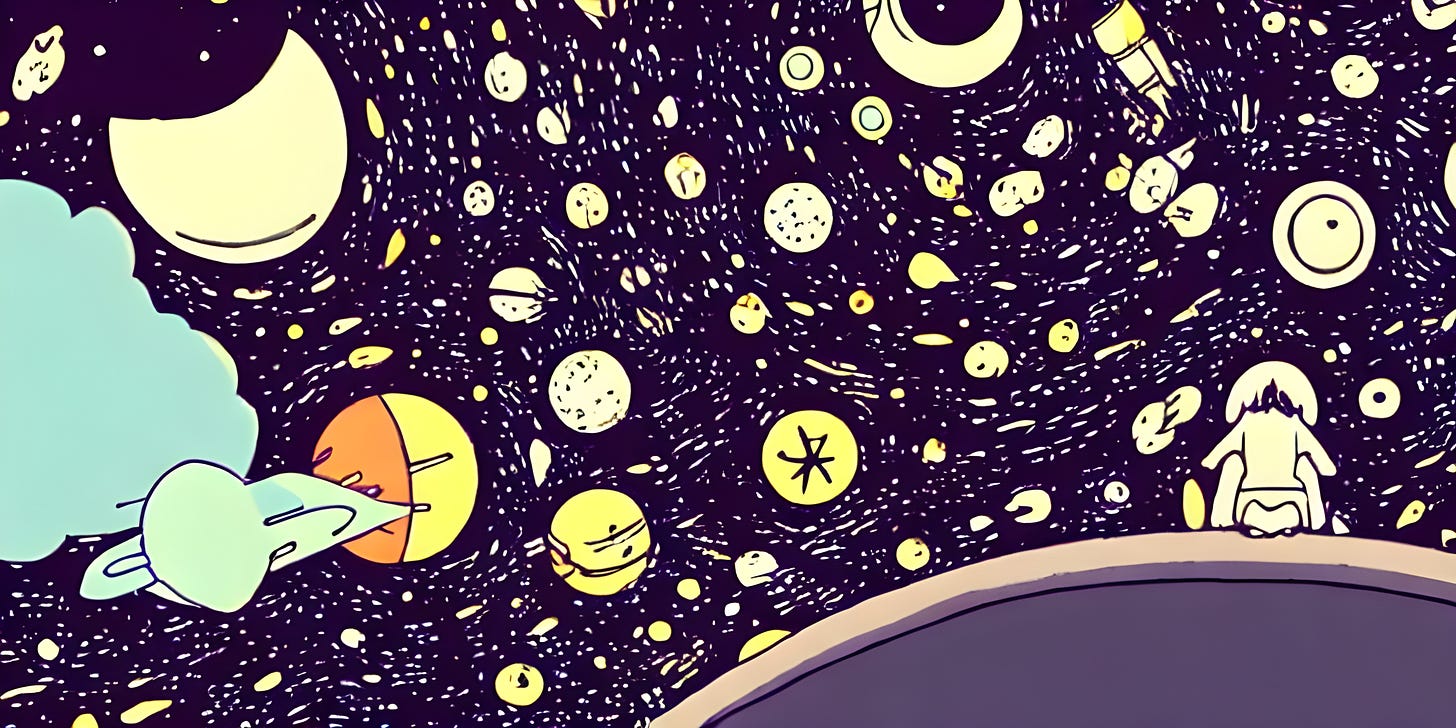I am switching to a series of shorter essays on M/W/F as a way of mapping the terrain I will cover in greater detail once the basic contours are known.
Where I want to go 👇🏾
The most important development in the practice of science in the 20th century and continuing into ours was the systems/cybernetic revolution, in which we can include not only computing systems but also biological systems and social systems. The Manhattan Project, the Apollo Mission and the Human Genome project are all successes of this style of doing science and technology.
These days the wins arrive in the mail everyday - Alpha Go solving protein folding and so on. Every single one of these comes under the label of ‘big science’ and open to the criticism that a) it adds a large managerial layer to the practice of science and b) it is not suitable for blue-sky research, but for scaling up a knowledge system whose fundamentals are well understood.
I will use the term ‘cybernetics’ as a catch all phrase for the content of these new sciences, the social organizations that help us conduct such science and the technical machinery that goes into making it all happen.
Cybernetic science has a reputation for being dull and industrial; I was once told by a major practitioner that his institute, of which he was the chief scientific officer, wasn’t the traditional research institute where each PI runs their own lab. Instead, it was designed to be a corporation with an overall mission and everyone had work assigned in accordance with that mission. I am quite sure that’s how the Human Genome Project was run and that’s how Deep Mind runs internally. The model works for the knowledge industry, and why should that industry be any different from any other industry? Still, the romantic in me feels duty bound to ask:
What’s the alternative? How can cybernetic science be creative, going where no one has gone before?
For that to happen, we need to postulate an object of study that’s proper to cybernetics itself, i.e., an object that’s revealed only by the science of cybernetics, just as the atom is the proper object of study of physics (not atoms literally, but the quest for the smallest component of matter). Let me offer the ‘world’ as the proper target of study of cybernetics. In the study of worlds we hope to reveal an entity that sits uncomfortably with physics, even if there’s nothing supernatural about it.
Isn’t that exciting if true?
‘Society only makes sense in the light of the planet’ take one
For most of us, life is 'life in society’. No, that’s not the obvious claim we are social creatures who have always lived with others. Society is a lot more than communal living, for it introduces new ideas, ideals & institutions that influence our behavior. For example: long distance communication forms and media artifacts are a huge part of what life in society means for most of us.
PS: That’s why I said: ‘for most of us’ because all of us are communal creatures, but there are a few of us who don’t live in society in the modern sense of that term. It’s society in the Niklas Luhmann sense of that term that’s being subsumed by planetary life.
What can that possibly mean? I don't have a definitive answer, but here are some important new ways in which planetary life builds upon life in society.
We are much more aware of new 'circulants' such as carbon and covid, along with existing circulants such as money and information.
Our sense of history and geography expands to include a deep nonhuman past. This is not merely evolutionary history but the history of human BEINGS as one among many BEINGS that have inhabited one BEING, i. e., the EARTH.
The production of new cultural artifacts and artistic traditions that expand beyond the human. I can't imagine grasping 'humanity' without the novel or the movie. They are essential to the common experience of humanity. If the novel is the art form of life in society, what will be the corresponding art for planetary life?
The modern era saw the emergence of new systems of knowledge of life in society:philosophy, anthropology, sociology, economics etc and also new artistic forms that helped reveal humans as humans to one another. As part of this self-revelation of humanity, new institutions such as the nation state arose with characteristic ways of knowing their subjects- the census, income data, central banks etc..
What happens to this infrastructure of the social when you let the planet into the door?





